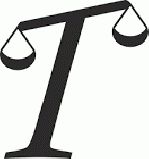With Approval Voting (AV), a voter is presented with a list of all of the candidates and asked to mark which of the candidates the voter approves of for the office in question. This might appear to be a positive voting system as defined in an earlier article, Neither Positive nor Negative but Balanced Voting, because a voter can only vote explicitly for each specific candidate. But on the other hand, some people (it will be convenient to call them AP-partisans) will claim that it is a balanced system because of the technical point that one can vote against a specific candidate by specifying approval for all of the other candidates.
This might seem to be an extreme example of strategic voting, insisting that the voter vote a prescribed way for all of the other candidates (no matter what the voter's feelings about those other candidates) in order to make clear the voter's feelings about that one specific candidate. Strategic voting strikes many voters as dishonesty and voting system that it leads voters to resort to strategic voting would at least seem not to provide voters with adequate ability to express their feelings explicitly and directly.
The apparent conflict described above was resolved, at least technically, in the earlier article, Approval Voting and Confusing Language, by carefully explaining the meaning of balanced voting. I don't mean to imply any ownership of the word "balanced," but I do need to make it clear that different people may use the term in other ways.
You may recall that in the earlier article, What Might be the Best Voting System? Balanced Approval Voting (BAV) was introduced as the balanced form of AV. With this voting system, a voter has the option, for each candidate, to specify approval or disapproval or to remain neutral on that specific candidate by expressing neither approval nor disapproval. AV, by way of comparison, allows the voter only the opportunity for each candidate to specify approval or not to specify approval (effectively remain neutral with respect to that candidate.

Free vector graphic: Horizontal, Balance, T, Weigh Out - Free ...678 Ã-- 720 - 60k - png
(Image by pixabay.com) Details DMCA
AV-partisans like to consider AV to be balanced, but their notion of balance is weaker than the way I have used the term. They prefer the weaker version despite the facts that it reduces the voter's freedom of expression and it encourages strategic voting. They feel that AV is just as good as BAV, because (by their definition) AV is already balanced.
Perhaps a good way to see how these two notions of balance differ will become apparent by exploring an example election played out using the two different voting systems. Let's consider an election between three candidates, A, B and C. Let us suppose that A is a very polarizing candidate who is strongly supported by 51% of the voters but who is intensely opposed by the 49% of the other voters. Candidate B on the other hand is not particularly disliked by anyone but is strongly supported by 40% of the voters (all of whom are among the 49% who oppose A). C has the support of only 6% of the voters but is opposed by 4%. In terms of net favorability, both A and C have 2% favorability while B has 40% net favorability. BAV directly measures net favorability and so B would be the clear winner with BAV.
However, in an AV election (without any strategic voting), A would receive 51% approval, B would receive 40% and C would receive 6%, making A the clear winner rather than B. But we have to consider that B voters might decide to vote strategically against A rather than for B. The only way they can do that is to vote approval for both B and C rather than just for B. But this serves only to increase the approval rating for C, perhaps by as much as 40%. In this case C would becom the winner with 55% approval.
Supporters of A or B together make up 91% of the voters. The remaining 9% could perhaps, for some reason, all decide to strategically cast votes for B but this would increase B's approval rating to at most 49% against A's 51% and C's 55%. Despite the fact that B has the greates net approval, there is no way that B could win under AV. Recall, however, that B would win under BAV.
I leave it to you to decide whether net approval is a good basis for choosing who to collect. But for myself, it seems about as good a criterion as any I can think of.





